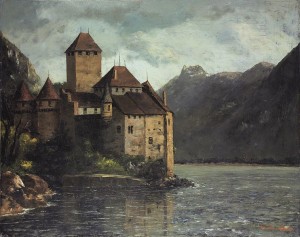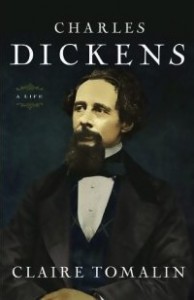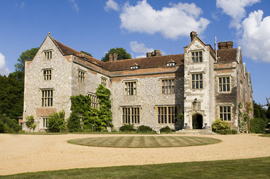 This past weekend I attended Washington Romance Writers Retreat, In the Company of Writers, where, in Winchester, Maryland, we listened to speakers, attended workshops, played the always raucous Romance Jeopardy, talked endlessly with other writers, and raffled off gift baskets. It was a glorious time even if our beautiful Spring weather, lately in the 60s and 70s, dipped to the uncharacteristically cold 50s.
This past weekend I attended Washington Romance Writers Retreat, In the Company of Writers, where, in Winchester, Maryland, we listened to speakers, attended workshops, played the always raucous Romance Jeopardy, talked endlessly with other writers, and raffled off gift baskets. It was a glorious time even if our beautiful Spring weather, lately in the 60s and 70s, dipped to the uncharacteristically cold 50s.
I was trying to think of a connection between the Regency and the Retreat and suddenly slapped my forehead. Of course! It was obvious!
 In the summer of 1816, Lord Byron, his physician John Polidori, Percy Bysshe Shelley, Mary Shelley, and her step-sister, Claire Clairmont (who was chasing Byron) were summering in Geneva. Like at our Retreat the the weather turned on them, although Byron et. al. suffered rain and storms, which we didn’t, but it meant that they were all stuck for several days in the Villa Diodati, the villa Byron rented which once had once housed Milton. Rousseau and Voltaire had also stayed nearby, so this was a place where writers gathered, albeit one at a time, until this summer of 1816.
In the summer of 1816, Lord Byron, his physician John Polidori, Percy Bysshe Shelley, Mary Shelley, and her step-sister, Claire Clairmont (who was chasing Byron) were summering in Geneva. Like at our Retreat the the weather turned on them, although Byron et. al. suffered rain and storms, which we didn’t, but it meant that they were all stuck for several days in the Villa Diodati, the villa Byron rented which once had once housed Milton. Rousseau and Voltaire had also stayed nearby, so this was a place where writers gathered, albeit one at a time, until this summer of 1816.
Their stormy and cold weather was due to the 1815 eruption of a distant Indonesian volcano, creating (along with other atmospheric and meteorological events) the Year Without A Summer.
History will tell us whether our little cold snap was due to climate change or simply the way it is sometimes in the Mid-Atlantic region.
But I digress….
On June 16, in order to pass the time the group read German ghost stories aloud. Byron was seized with the idea that they all should write a ghost story. Shelley and Byron, after producing forgettable or incomplete results, soon tired of the idea. Polidori began a story that became The Vampyre, the first modern vampire tale. One might say that was the genesis of vampire romances…
Mary Shelley took the challenge seriously, but was distressed when no story idea came to her. (Certainly at our Retreat, discussion of writers block came up once or twice!) Mary stewed the next couple days.
The weather improved enough for them to take a boat trip around the lake during which they discussed whether scientists would bring a corpse back to life. Later Inspiration came to Mary in a dream (as romance writers we are used to inspiration coming in various ways), an image of a scientist looking down upon his creation and being horrified. She eventually expanded this story idea into the book, Frankenstein; or, The Modern Prometheus.
 On that trip they also visited the medieval Château de Chillon. It had been a political prison in the 16th century and Byron and Shelley were enthralled by a visit to the dungeon where a prisoner had been chained to a pillar for six years. This visit seems to have inspired Byron’s poem The Prisoner of Chillon and sparked Shelley to work on his Hymn to Intellectual Beauty.
On that trip they also visited the medieval Château de Chillon. It had been a political prison in the 16th century and Byron and Shelley were enthralled by a visit to the dungeon where a prisoner had been chained to a pillar for six years. This visit seems to have inspired Byron’s poem The Prisoner of Chillon and sparked Shelley to work on his Hymn to Intellectual Beauty.
I figure that this 1816 group of writers (all except Claire Clairemont, who seemed to be there only to pursue Byron) used coming together to inspire themselves to further writing. As happens in the Retreat, some inspirations lead to writing success and some do not. Polidori and Mary Shelley persisted after the the writing challenge was made. Each produced stories that live on today. Byron and Shelley found inspiration elsewhere to produce lasting work.
At our Retreat Kathy Gilles Seidel and Pamela Regis led a writing workshop that had each of us working on our own stories. I came away from that with a story idea that I hope to make into a novella. There were other equally inspiring moments during the Retreat. Jane Porter‘s Pacing Workshop, for example.
I figure that when one is In The Company of Writers, whether it be in 1816 or 2013, creativity blossoms and great things may come from that…but only if one persists.
I have no photo from the Retreat, but I must tell you another thing about it. Years ago WRW devised a game they call Romance Jeopardy, based on the long-running TV game show and in the same style. This year we were all asked to wear something Scottish, producing some very clever costumes or some more mundane like my Scottish kilt. One of the categories was Gretna Green and the “answer” was “A penniless lord and a penniless lady marry in Gretna Green…” I’m thinking, “Who would write that story?”
 Well, turns out the “question” was “What was The Wagering Widow by Diane Gaston?”
Well, turns out the “question” was “What was The Wagering Widow by Diane Gaston?”
Let me tell you, the roar of laughter at my missing that question was deafening!!!
Come to my Diane Gaston Blog on Thursday to hear about how my workshop went. I spoke on What Downton Abbey Can Teach Us About Writing Historical (And Other) Romance.
Has a writing (or any kind) of retreat inspired you in certain ways? Did you persist? Will you persist?







 Well, turns out the “question” was “What was
Well, turns out the “question” was “What was